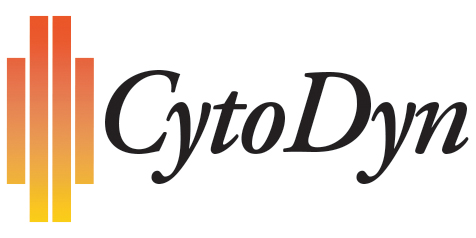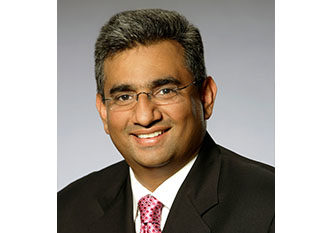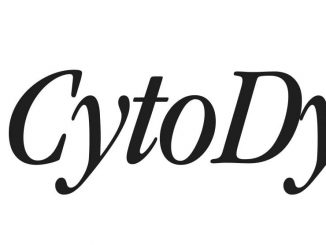
VANCOUVER, Washington, May 15, 2019 — After four years of monotherapy trials, data is now available to submit the long-anticipated pivotal trial for monotherapy to the FDA
Trial will include 10 weeks of induction therapy to identify which patients are likely to respond and which patients can safely return to their original HAART regimen
CytoDyn Inc. (otc.qb:CYDY), a late stage biotechnology company developing leronlimab (PRO 140), a CCR5 antagonist with the potential for multiple therapeutic indications, announced today that it has filed with the U.S. Food and Drug Administration (FDA) the pivotal trial protocol for leronlimab as a monotherapy for HIV patients. The latest investigative monotherapy trial for HIV has now produced sufficient data for the Company’s Key Opinion Leaders to design a monotherapy pivotal Phase 3 trial. The objective of this trial is to assess the treatment strategy and clinical safety of using leronlimab subcutaneous (SC) 700mg weekly dose as single-agent induction therapy followed by leronlimab SC 525 or 700mg as maintenance therapy for the chronic suppression of CCR5-tropic HIV-1 infection.
In this study, patients will receive a combination of existing retroviral regimen and leronlimab 700 mg SC for four weeks (the overlap phase) before shifting to weekly leronlimab 700mg monotherapy for 10 weeks (the monotherapy induction phase). Subsequently, patients will be randomized 1:1 to leronlimab 525mg (Group A) or leronlimab 700mg (Group B) for a 36-week monotherapy maintenance phase. Success with this monotherapy trial may allow the Company to file a BLA for label expansion in the event leronlimab receives FDA approval for HIV patients as a combination therapy with HAART.
Robert T. Schooley, M.D., Professor of Medicine, Division of Infectious Diseases, Vice Chair, Department of Medicine, Co-Director, Center for Innovative Phage Applications and Therapeutics, Senior Director, International Initiatives, University of California, San Diego, commented: “The development of simple and well tolerated oral daily treatment regimens have transformed the face of HIV disease for most patients with the virus. Nonetheless, there remain people for whom daily oral therapy is a challenge. This group of patients has driven ongoing interest in the development of longer acting regimens that can obviate the requirement for daily oral dosing. PRO140, or leronlimab, is one of several agents under study with this goal in mind.”
About Leronlimab (PRO 140)
The U.S. Food and Drug Administration (FDA) has granted a “Fast Track” designation to leronlimab as a combination therapy with HAART for HIV-infected patients and for metastatic triple-negative breast cancer. Leronlimab is an investigational humanized IgG4 mAb that blocks CCR5, a cellular receptor that appears to play multiple roles with implications in HIV infection, tumor metastases and immune signaling. Leronlimab has successfully completed nine Phase 1/2/3 clinical trials in over 700 people, including a successful pivotal Phase 3 trial in combination with standard anti-retroviral therapies in HIV-infected treatment-experienced patients.
In the setting of HIV/AIDS, leronlimab belongs to a new class of therapeutics called viral-entry inhibitors; it masks CCR5, thus protecting healthy T cells from viral infection by blocking the predominant HIV (R5) subtype from entering those cells. Leronlimab has been the subject of nine clinical trials, each of which demonstrated that leronlimab can significantly reduce or control HIV viral load in humans. The leronlimab antibody appears to be a powerful antiviral agent leading to potentially fewer side effects and less frequent dosing requirements compared with daily drug therapies currently in use.
In the setting of cancer, research has shown that CCR5 likely plays a central role in tumor invasion and metastasis and that increased CCR5 expression is an indicator of disease status in several cancers. Moreover, research has shown that drugs that block CCR5 can block tumor metastases in laboratory and animal models of aggressive breast and prostate cancer. CytoDyn is conducting additional research with leronlimab in the cancer setting and plans to initiate additional Phase 2 human clinical trials, in addition to triple-negative breast cancer, when appropriate.
The CCR5 receptor also appears to play a central role in modulating immune cell trafficking to sites of inflammation and may be crucial for the development of acute graft-versus-host disease (GvHD) and other inflammatory conditions. Clinical studies by others further support the concept that blocking CCR5 using a chemical inhibitor can reduce the clinical impact of acute GvHD without significantly affecting the engraftment of transplanted bone marrow stem cells. CytoDyn is currently conducting a Phase 2 clinical study with leronlimab to further support the concept that the CCR5 receptor on engrafted cells is critical for the development of acute GvHD and that blocking this receptor from recognizing certain immune signaling molecules is a viable approach to mitigating acute GvHD. The FDA has granted “orphan drug” designation to leronlimab for the prevention of graft-versus-host disease (GvHD).
About CytoDyn
CytoDyn is a biotechnology company developing innovative treatments for multiple therapeutic indications based on leronlimab, a novel humanized monoclonal antibody targeting the CCR5 receptor. CCR5 appears to play a key role in the ability of HIV to enter and infect healthy T-cells. The CCR5 receptor also appears to be implicated in tumor metastasis and in immune-mediated illnesses, such as graft-vs-host disease (GvHD) and NASH. CytoDyn has successfully completed a Phase 3 pivotal trial with leronlimab in combination with standard anti-retroviral therapies in HIV-infected treatment-experienced patients. CytoDyn plans to seek FDA approval for leronlimab in combination therapy and plans to complete the filing of a Biologics License Application (BLA) in 2019 for that indication. CytoDyn is also conducting a Phase 3 investigative trial with leronlimab as a once-weekly monotherapy for HIV-infected patients and, plans to initiate a registration-directed study of leronlimab monotherapy indication, which if successful, could support a label extension. Clinical results to date from multiple trials have shown that leronlimab can significantly reduce viral burden in people infected with HIV with no reported drug-related serious adverse events (SAEs). Moreover, results from a Phase 2b clinical trial demonstrated that leronlimab monotherapy can prevent viral escape in HIV-infected patients, with some patients on leronlimab monotherapy remaining virally suppressed for more than four years. CytoDyn is also conducting a Phase 2 trial to evaluate leronlimab for the prevention of GvHD and has received clearance to initiate a clinical trial with leronlimab in metastatic triple-negative breast cancer. More information is at www.cytodyn.com.
Forward-Looking Statements
This press release contains certain forward-looking statements that involve risks, uncertainties and assumptions that are difficult to predict. Words and expressions reflecting optimism, satisfaction or disappointment with current prospects, as well as words such as “believes,” “hopes,” “intends,” “estimates,” “expects,” “projects,” “plans,” “anticipates” and variations thereof, or the use of future tense, identify forward-looking statements, but their absence does not mean that a statement is not forward-looking. The Company’s forward-looking statements are not guarantees of performance, and actual results could vary materially from those contained in or expressed by such statements due to risks and uncertainties including: (i) the sufficiency of the Company’s cash position, (ii) the Company’s ability to raise additional capital to fund its operations, (iii) the Company’s ability to meet its debt obligations, if any, (iv) the Company’s ability to enter into partnership or licensing arrangements with third parties, (v) the Company’s ability to identify patients to enroll in its clinical trials in a timely fashion, (vi) the Company’s ability to achieve approval of a marketable product, (vii) the design, implementation and conduct of the Company’s clinical trials, (viii) the results of the Company’s clinical trials, including the possibility of unfavorable clinical trial results, (ix) the market for, and marketability of, any product that is approved, (x) the existence or development of vaccines, drugs, or other treatments that are viewed by medical professionals or patients as superior to the Company’s products, (xi) regulatory initiatives, compliance with governmental regulations and the regulatory approval process, (xii) general economic and business conditions, (xiii) changes in foreign, political, and social conditions, and (xiv) various other matters, many of which are beyond the Company’s control. The Company urges investors to consider specifically the various risk factors identified in its most recent Form 10-K, and any risk factors or cautionary statements included in any subsequent Form 10-Q or Form 8-K, filed with the Securities and Exchange Commission. Except as required by law, the Company does not undertake any responsibility to update any forward-looking statements to take into account events or circumstances that occur after the date of this press release.



